Your shopping cart is currently empty.
Books & Sheet Music
- Christmas Books
- Habits of a Successful Beginner Band Musician
- Habits of a Successful Middle School Musician
- Method Books
- Miscellaneous Media
- Solos & Ensembles
- Songbooks
- Sound Innovations
- Vocal/Choir
-
 Price: $10.95
Price: $10.95 -
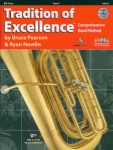 Price: $12.99
Price: $12.99 -
 Price: $10.95
Price: $10.95 -
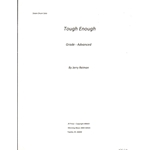 Price: $5.00
Price: $5.00 -
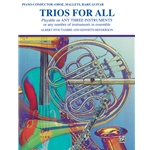 Price: $7.99
Price: $7.99 -
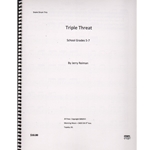 Price: $8.00
Price: $8.00 -
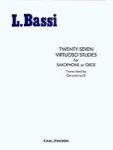 Twenty-Seven Virtuoso Studies For Saxophone Or Obo O61Twenty-Seven Virtuoso Studies (For Saxophone or Oboe). By Luigi Bassi (1766-1825). For Saxophone, Oboe. Softcover. Standard notation. 67 pages. Published by Carl Fischer (CF.O61).Price: $18.99
Twenty-Seven Virtuoso Studies For Saxophone Or Obo O61Twenty-Seven Virtuoso Studies (For Saxophone or Oboe). By Luigi Bassi (1766-1825). For Saxophone, Oboe. Softcover. Standard notation. 67 pages. Published by Carl Fischer (CF.O61).Price: $18.99 -
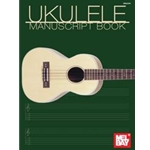 Price: $6.99
Price: $6.99 -
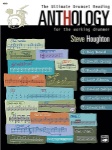 Ultimate Drumset Reading Anthology 16933This diverse collection of drum charts comes with a CD of accompaniments recorded both with drums for demonstration and without drums for playing along, and includes analyses and performance suggestions. Performance settings like big band, small group, live shows, Broadway, studio work, dance jobs and cruise ships are discussed in terms of responsibilities, challenges, expectations, awareness and problem areas. 72 pages.Price: $21.95
Ultimate Drumset Reading Anthology 16933This diverse collection of drum charts comes with a CD of accompaniments recorded both with drums for demonstration and without drums for playing along, and includes analyses and performance suggestions. Performance settings like big band, small group, live shows, Broadway, studio work, dance jobs and cruise ships are discussed in terms of responsibilities, challenges, expectations, awareness and problem areas. 72 pages.Price: $21.95 -
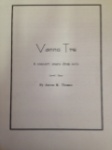 Vanno Tre ATCS2A concert snare drum soloPrice: $2.50
Vanno Tre ATCS2A concert snare drum soloPrice: $2.50 -
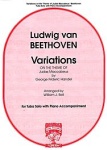 Variations on the Theme of Judas Maccabeus W1644Variations on the Theme of Judas Maccabeus (For Tuba Solo with Piano Accompaniment). By Ludwig van Beethoven (1770-1827). Arranged by William J. Bell. For Tuba Solo, Piano. Set of parts. Standard notation. 11 pages. Published by Carl Fischer (CF.W1644).Price: $9.99
Variations on the Theme of Judas Maccabeus W1644Variations on the Theme of Judas Maccabeus (For Tuba Solo with Piano Accompaniment). By Ludwig van Beethoven (1770-1827). Arranged by William J. Bell. For Tuba Solo, Piano. Set of parts. Standard notation. 11 pages. Published by Carl Fischer (CF.W1644).Price: $9.99 -
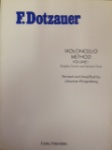 Violoncello Method Vol 1 03674Violoncello Method Vol 1Price: $10.95
Violoncello Method Vol 1 03674Violoncello Method Vol 1Price: $10.95 -
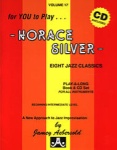 Volume 17 - Horace Silver, book only V17BKBeginning/Intermediate. This set contains some of Horace's most famous songs. Tempos are all slow to medium and musical styles/grooves represented include slow 2-beat, rock blues, lush ballad, 32 bar shuffle, bossa and swing. Many of these can be heard on Horace's break-through albums of the 60s and 70s with Joe Henderson, J.J. Johnson, and Woody Shaw. RHYTHM SECTION IS: Kenny Barron, Piano; Ron Carter, Bass; Al Foster, Drums.Price: $5.95
Volume 17 - Horace Silver, book only V17BKBeginning/Intermediate. This set contains some of Horace's most famous songs. Tempos are all slow to medium and musical styles/grooves represented include slow 2-beat, rock blues, lush ballad, 32 bar shuffle, bossa and swing. Many of these can be heard on Horace's break-through albums of the 60s and 70s with Joe Henderson, J.J. Johnson, and Woody Shaw. RHYTHM SECTION IS: Kenny Barron, Piano; Ron Carter, Bass; Al Foster, Drums.Price: $5.95 -
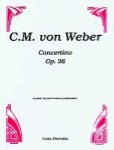 Weber Concertino, Op. 26 CU724Concertino, Op. 26 by Carl Maria von Weber (1786-1826). For clarinet and piano. Classical Period. Set of performance parts. Standard notation. Opus 26. 15 pages. Published by Carl Fischer (CF.CU724).Price: $7.99
Weber Concertino, Op. 26 CU724Concertino, Op. 26 by Carl Maria von Weber (1786-1826). For clarinet and piano. Classical Period. Set of performance parts. Standard notation. Opus 26. 15 pages. Published by Carl Fischer (CF.CU724).Price: $7.99 -
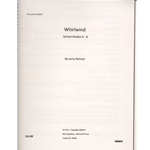 Price: $15.00
Price: $15.00 -
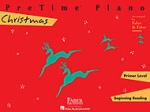 PreTime Piano Christmas FF1015Piano Adventures has set a new standard for a new century of piano teaching. It is fast becoming the method of choice at leading university pedagogy programs and major teaching studios around the world. But more importantly, Piano Adventures is bringing smiles to the faces of thousands of piano students. It can do the same for your students.Price: $5.50
PreTime Piano Christmas FF1015Piano Adventures has set a new standard for a new century of piano teaching. It is fast becoming the method of choice at leading university pedagogy programs and major teaching studios around the world. But more importantly, Piano Adventures is bringing smiles to the faces of thousands of piano students. It can do the same for your students.Price: $5.50
